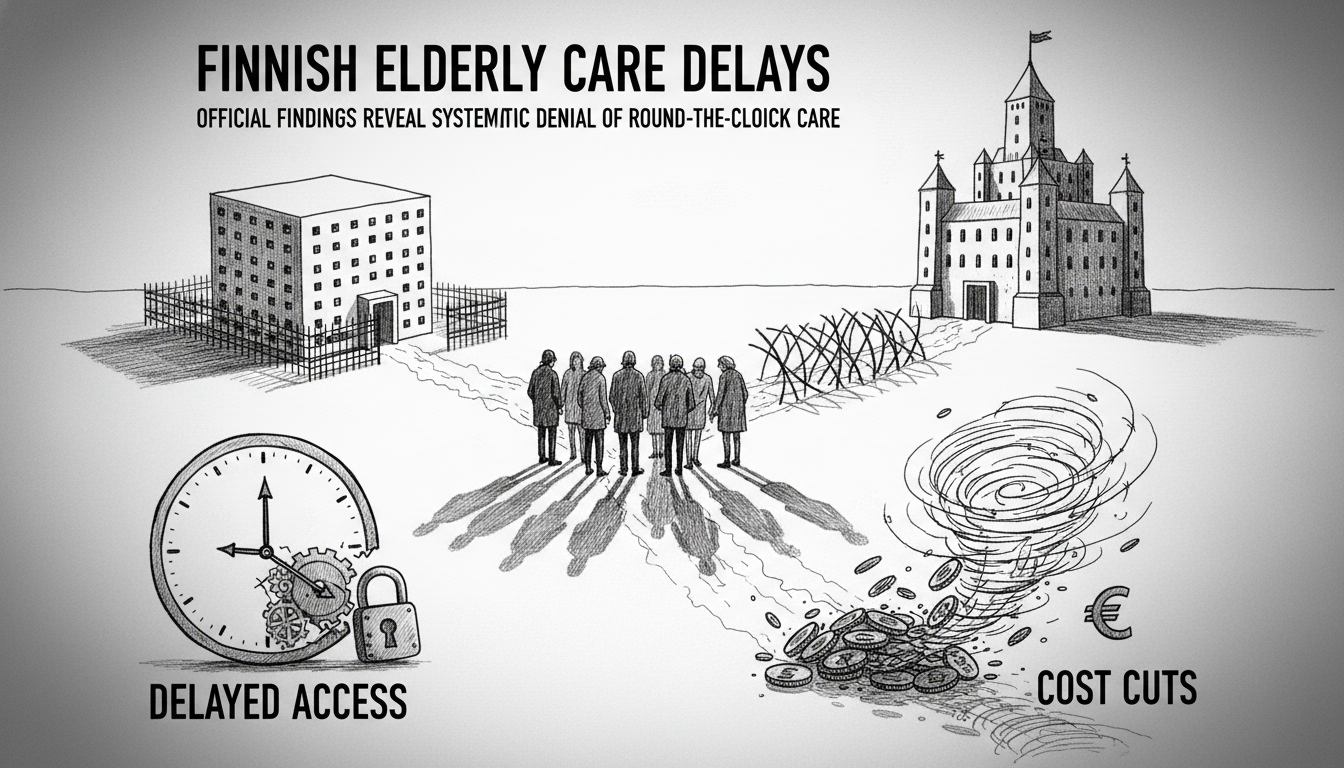Southern Finland's Regional State Administrative Agency has uncovered concerning practices in elderly care services across welfare districts. Officials found that access to 24-hour institutional care is being systematically delayed for elderly residents. Welfare regions appear to be using various tactics to postpone expensive round-the-clock care placements.
Senior inspector Päivi Vainio from the agency confirmed the findings. She stated that welfare districts are stretching legal interpretations to achieve budget savings. The situation has raised serious questions about elderly care standards in Finland.
Elderly patients now typically receive round-the-clock care only when they reach critical condition. At that point, the care resembles end-of-life support rather than proper elderly care. Waiting times for proper care facilities can extend for months, even when beds remain available.
One method involves redirecting elderly patients to communal living arrangements. This care model has gained popularity as a cost-saving measure. It requires fewer staff members since caregivers don't provide overnight supervision.
However, inspectors discovered that some residents placed in communal living have severe dementia or mobility issues. Their safety cannot be guaranteed at all times without proper supervision. The model was originally intended for seniors who need some assistance but don't require nighttime care.
Another delaying tactic involves extended assessment periods. Elderly patients might spend up to three months in temporary assessment services before accessing long-term care. This approach benefits welfare districts financially because temporary services charge daily rates regardless of clients' income.
Long-term care costs are calculated based on residents' financial situation. The three-month assessment period allows districts to collect higher payments from clients who would pay less under long-term care arrangements.
Care providers have filed numerous complaints about these practices. Private companies that deliver elderly care services report financial losses when beds remain empty due to delayed placements. The inspector generally trusts these provider reports as accurate reflections of the situation.
Finland's elderly care system relies heavily on self-monitoring by welfare districts. The regional agency now guides most reported issues back to districts' own oversight processes. Only serious cases trigger direct intervention from administrative authorities.
The findings highlight systemic challenges in Finland's elderly care restructuring. As municipalities transferred social and healthcare responsibilities to new welfare districts, cost pressures appear to have influenced service delivery decisions. The situation reflects broader tensions between budgetary constraints and quality care standards in Nordic welfare systems.
This pattern of delaying expensive care options raises fundamental questions about Finland's commitment to its aging population. With demographic shifts increasing pressure on elder care systems, these findings suggest urgent need for clearer regulations and consistent enforcement across regions.

